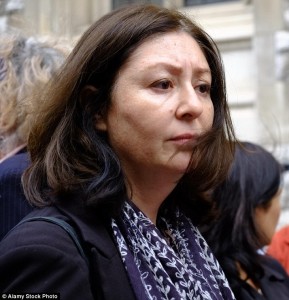
An Iranian woman who is critical is Islam has been banned from speaking at a British university for fear she will offend Muslims.
Maryam Namazie was due to make a presentation to Warwick University’s Student Union October 28, having been invited by the Warwick Atheists, Secularists and Humanists (WASH) group.
That group was contacted by the student union and told the speech had been canceled after “a number of flags”’ were raised.
According to The Independent of London, the union told the group: “After researching both [Namazie] and her organization, a number of flags have been raised. We have a duty of care to conduct a risk assessment for each speaker who wishes to come to campus.”
Articles written by Namazie indicated she was “highly inflammatory” and “could incite hatred on campus,” the student union concluded.
Namazie, who fled Iran with her family in 1980, told the newspaper she was going to be speaking about apostasy, blasphemy and nudity in the age of the Islamic State.
She said she was stunned that her talk was canceled by the student union. “They’re basically labeling me a racist and an extremist for speaking out against Islam and Islamism,” she said.
“If people like me who fled an Islamist regime can’t speak out about my opposition to the far-right Islamic movement, if I can’t criticize Islam, that leaves very [few] options for me as a dissenter, because the only thing I have is my freedom of expression.
“If anyone is inciting hatred, it’s the Islamists who are threatening people like me just for deciding we want to be atheist, just because we don’t want to toe the line.
“To try to censor me, does a double disservice to those people who are dissenting by denying people like me the only opportunity we have to speak.”
The Warwick Atheists, Secularists and Humanists (WASH) group has appealed the decision and is awaiting a final student union decision after a review.
The president of the War-wick Student Union, Isaac Leigh, said, “The initial decision was made for the right of Muslim students not to feel intimidated or discriminated against on their university campus, rather than for suppressing free speech.”